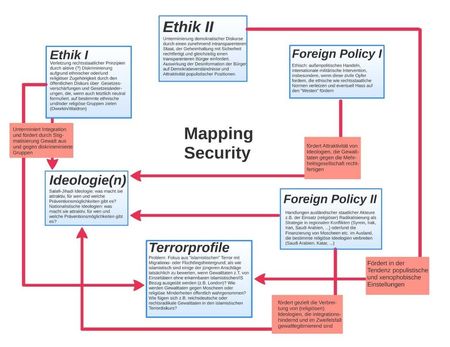Book Projects
Vertical Divider
Mapping Security
|
The project aims at a more holistic analysis of present security/ terrorism discourses by implementing a multi-level analysis. It explores the interactions between (un)ethical behavior, including discriminating legal actions, international politics, international military intervention, and ideology. It also looks at the impact of national security by actions of other states that are hard to influence but still nonetheless impact state-level security related issues. The project builds on my previous work on violence and terrorism, Middle East related works in preparation for publication as well as the inaugural lecture of the CHHC Violence and Order research module, analyzing the Syrian crisis. |
Vertical Divider

|
Other Projects
|
Vertical Divider
Theories of Private Property in Transcultural Perspective |
The private property project marks a return to a project that is situated in the history of political thought tradition. It explores premodern (medieval) Islamic theories of property in comparison to dominant Western discourses, particularly associated with John Locke.
|
|
Vertical Divider
Ḥākimiyya Contested: Past Experiences and Contemporary Debates on the Quest for an Islamic State
|
In contemporary Islamist discourses, particularly in the Muslim Brotherhood and Salafi spectrum, one can notice a growing demand for an Islamic state, ordered in accordance with what is understood as ḥākimiyya, the governance of God. Disagreement, however, exists about two issues: first, it is contested whether it is necessary to introduce such a political and social order top-down or whether it is advisable to educate the Muslim believers first (bottom-up). The second contestation concerns the related idea of a past existence of such a ḥākimiyya society that has ceased to exist, narrated as past utopian Golden Age that has to be restored.
|